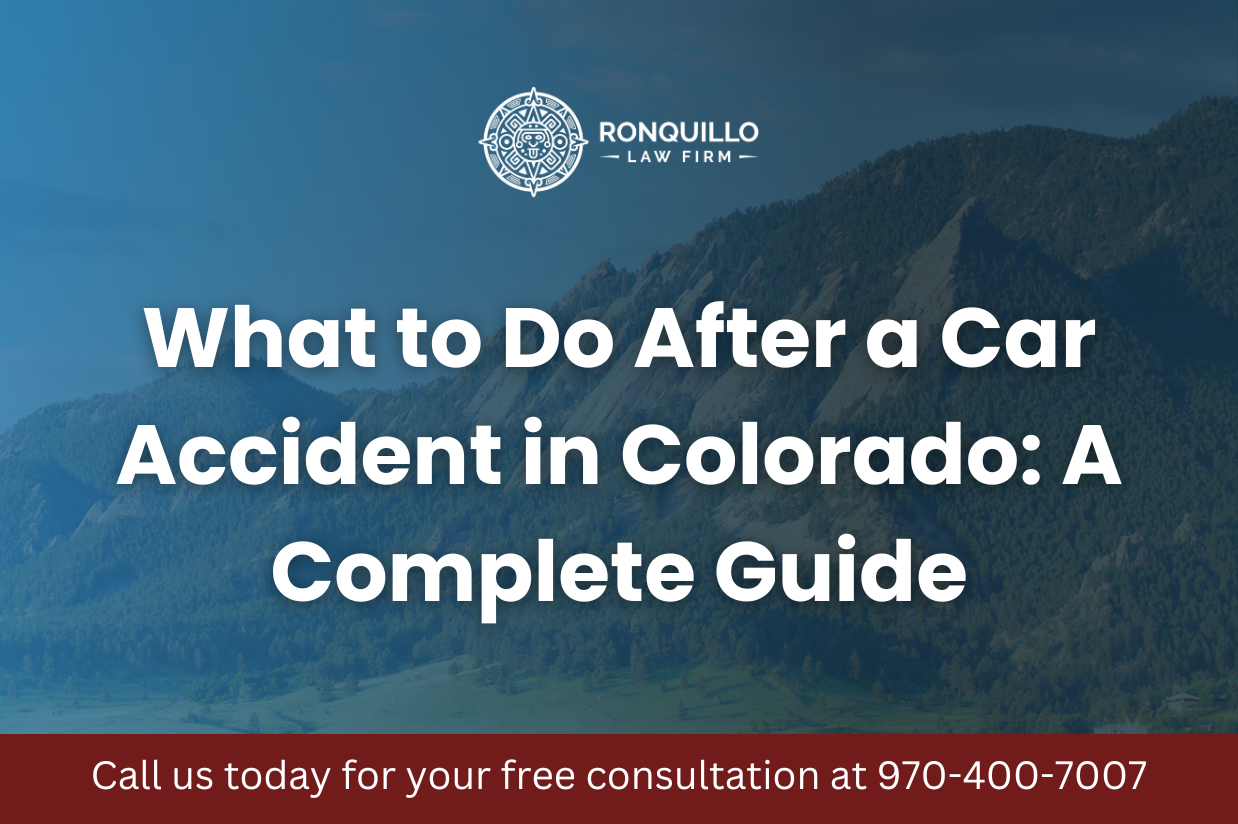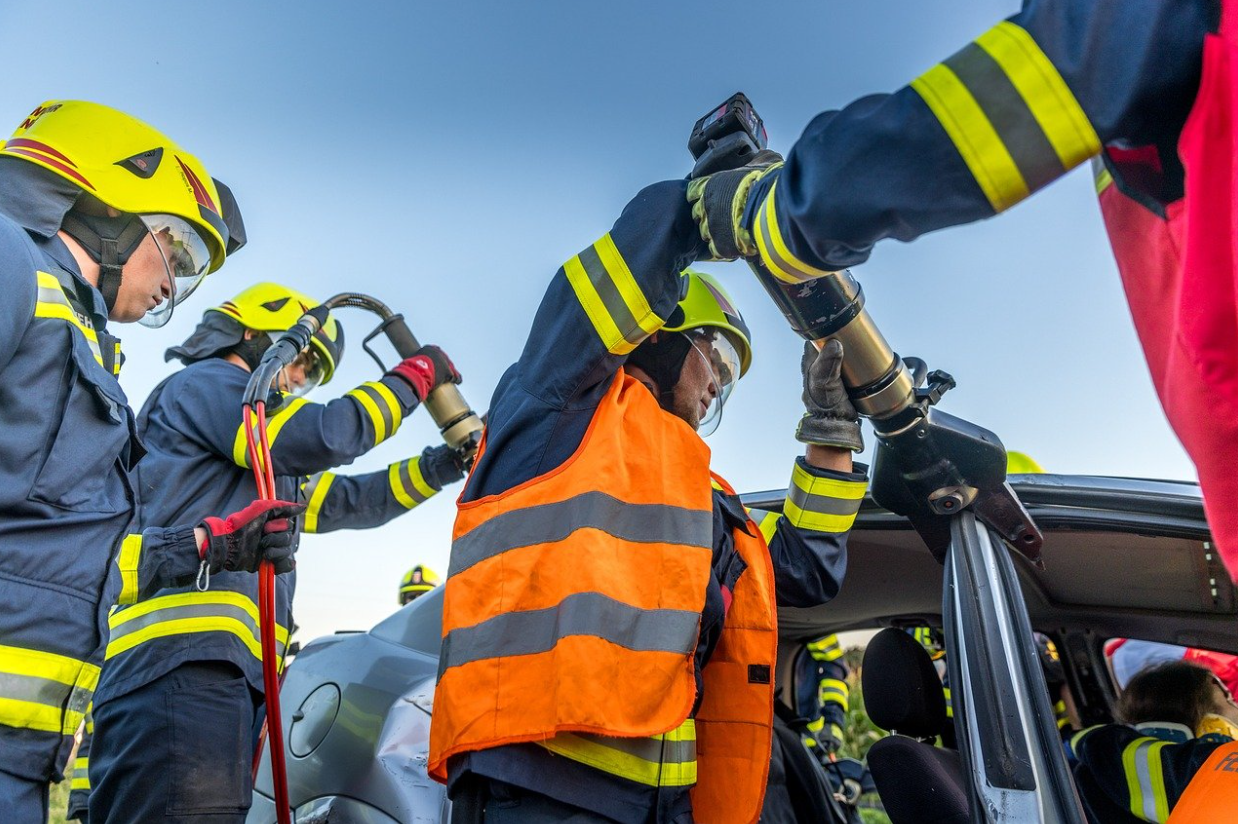Experiencing a car accident can be both disorienting and overwhelming, leaving you unsure of the next steps to take. Immediate action is not just about ensuring your own safety but also pivotal in dealing with the legal and financial aftermath effectively. Understanding what to do after a car accident is crucial, especially in Colorado, where the laws and steps that follow may have specific nuances. This guide aims to arm you with the essential information you need not just to navigate but to manage the situation with confidence, ensuring that you’re both safe and legally protected.
Starting with taking initial precautions right at the scene, the progression moves towards gathering essential information from all parties involved and any witnesses. Knowing what details to collect is imperative in building a solid foundation for any necessary legal or insurance proceedings. Following an accident, your priority should also include seeking medical attention, even if injuries are not immediately apparent, and securing legal advice to navigate the complexities of accident claims in Colorado. This guide will outline these critical steps in detail, providing a comprehensive roadmap on what to do after a motor vehicle accident, complemented by advice on what to do after a car crash to safeguard your health and legal rights.

Take Initial Precautions
Move Vehicles to Safety
If your vehicle is drivable and it is safe to do so, move it to the shoulder or a nearby curb. This action not only helps in clearing the traffic but is also mandated under Colorado law in cases of minor accidents on divided highways. Always ensure that moving the vehicle does not compromise your safety or that of others. Turn off the engine, set the parking brake, and use your hazard lights to alert other drivers.
Check for Injuries
Immediately assess yourself and others for any injuries. If there are any signs of injury, or if anyone is in distress, do not attempt to move the injured unless there is an immediate danger (like fire or drowning). It is crucial to prioritize medical help over all other actions. Even if no injuries are apparent, consider that some injuries like whiplash or internal bruising might not be immediately noticeable.
Call Emergency Services
Once safety is ensured and injuries are checked, call 911 without delay. Provide them with your exact location and inform them about the number of people involved and the nature of their injuries. This is essential as the dispatcher will determine the type of emergency services required at the scene. If the accident is minor and there are no injuries, calling the police is still advised to officially document the incident, which can be crucial for insurance claims.
Gather Essential Information
Photograph the Scene
Immediately after ensuring everyone’s safety, start documenting the accident scene with your smartphone. Capture wide-angle shots to show the overall context and close-up photos of specific damages. Include pictures of all vehicles involved, road conditions, traffic signs, and any relevant environmental conditions like weather or obstructions. This visual evidence is critical and can significantly influence the assessment of the incident by insurance adjusters or in legal proceedings.
Take Notes
While the details are fresh, jot down everything you observed before, during, and after the accident. Record the date, time, location, weather conditions, and any statements made by others at the scene. Having a written record will help you remember details that may become crucial later. Keep a pen and paper handy in your vehicle for such situations, as electronic devices may fail or run out of battery.
Collect Details from the Other Driver
Exchange crucial information with the other driver, including full names, contact details, insurance information, and driver’s license numbers. Make sure to note the vehicle details such as make, model, color, and license plate number. If the other party is hesitant to share their information, wait for law enforcement to facilitate the exchange. Gathering these details is essential for insurance claims and any potential legal actions.
Follow Up with Medical and Legal Advice
Seek Medical Evaluation
After a car accident, it’s imperative to seek medical attention immediately, even if no injuries are apparent. Some injuries, like internal organ damage or brain injuries, might not show symptoms immediately. Always follow up with your doctor and keep all scheduled appointments to ensure a thorough record of your injuries, which is crucial for your personal injury case.
Consult with Ronquillo Law Firm – Personal Injury Attorney
Consulting with a personal injury attorney early can significantly impact the outcome of your case. Choose an attorney who specializes in personal injury and has a proven track record in similar cases. An experienced attorney will navigate the complex legal landscape, ensuring that you do not miss critical deadlines and help maximize the compensation you can receive for your injuries.
Call the Ronquillo Law Firm to start your claim and seek justice for your case.
Know Your Legal Rights
Understanding your legal rights is crucial following a car accident. A knowledgeable personal injury lawyer can offer guidance on the legal options available to you and help establish fault and liability in your case. They can also negotiate with insurance companies on your behalf and ensure that your rights are protected throughout the legal process.
Conclusion
Through this guide, we have traversed the essential steps and precautions to be taken after a car accident in Colorado, emphasizing the importance of safety, legal procedures, and medical evaluations. From the initial actions right at the scene, such as moving vehicles to safety and checking for injuries, to the gathering of critical information and documentation, the guide provides a comprehensive roadmap for efficiently managing the aftermath of an accident. It underscored the critical role of medical assessments post-accident and the significance of legal advice in navigating through insurance and legal claims, ensuring that your rights are protected and that you are positioned to receive the compensation you deserve.
Furthermore, this guide highlights the broader implications of understanding and executing these steps meticulously – not only do they contribute to your personal recovery and legal protection, but they also ensure that all involved parties are treated fairly and responsibly in the wake of an unfortunate event. Engaging with a personal injury attorney and being informed about your legal rights are decisive steps in this process. As we conclude, remember that the knowledge of what to do after a car accident not only aids in immediate response but also fortifies your ability to handle the complexities of the aftermath, ensuring a smoother transition towards resolution and recovery.
FAQs
If you are involved in a car accident in Colorado, you should follow these steps:
- Contact the police immediately.
- Seek medical attention if needed.
- Ensure the safety of the scene to prevent further accidents.
- Exchange contact and insurance information with all parties involved, as well as any witnesses.
- Take photographs of the accident scene.
- Report the accident to your insurance company.
- Consult with an experienced attorney to discuss your legal options.
It is advisable to file any car insurance, personal injury, or property damage claims as soon as possible following an accident. In Colorado, you have a three-year statute of limitations to file claims related to auto accidents.
In Colorado, the law mandates that you must report a car accident to the police immediately after it occurs.
After a car accident, you should:
- Call 911 if there are any injuries.
- Contact the police.
- Collect names, addresses, telephone numbers, and driver’s license numbers of all drivers involved.
- Note down the license plates and vehicle identification numbers of all vehicles involved.
- Gather contact details of passengers and any witnesses present at the scene.


